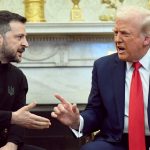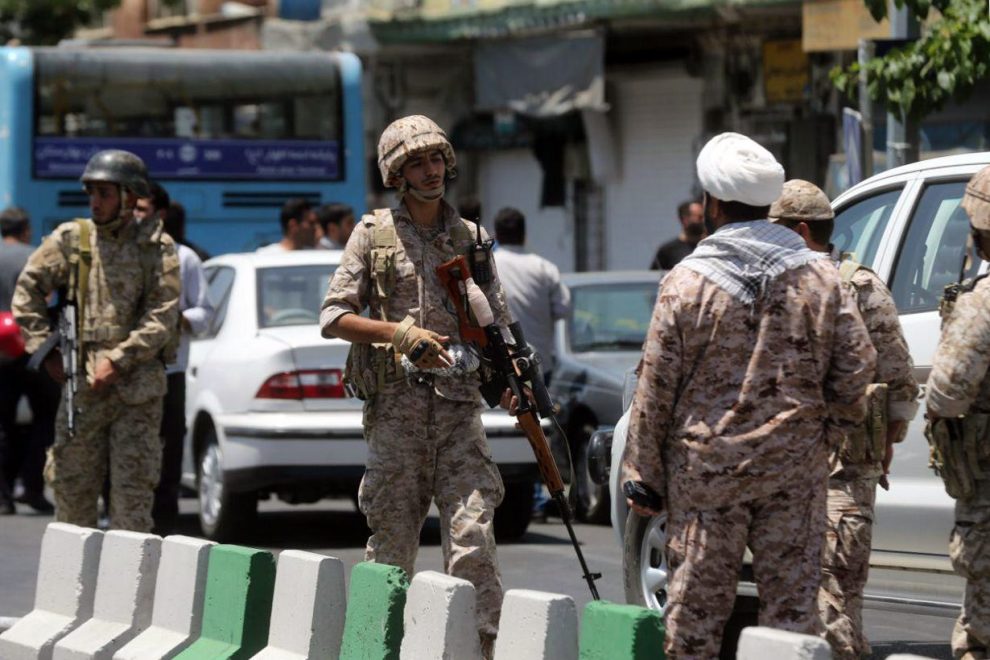President Trump on Monday formally labeled Iran’s Revolutionary Guard a “foreign terrorist organization,” in Washington’s first such designation for an entire foreign government entity.
The announcement, which officials said would put the military organization on the same level as terror groups like Hezbollah and Hamas, is the latest administration step to increase pressure on Iran.
Secretary of State Mike Pompeo, citing the IRGC’s ties to terror plots, said the designation recognizes a “basic reality.”
“This designation is a direct response to an outlaw regime and should surprise no one,” he said. “The IRGC masquerades as a legitimate military organization, but none of us should be fooled.”
The designation imposes sanctions that include freezes on assets the IRGC may have in U.S. jurisdictions and a ban on Americans doing business with it. The move also allows the U.S. to deny entry to people found to have provided the Guard with material support or prosecute them for sanctions violations.
In a statement, Trump said the unprecedented move “underscores the fact that Iran’s actions are fundamentally different from those of other governments.”
He warned: “If you are doing business with the IRGC, you will be bankrolling terrorism. This action sends a clear message to Tehran that its support for terrorism has serious consequences.”
Administration officials have said the step will further isolate Iran and make clear that the U.S. won’t tolerate Iran’s continued support for rebel groups and others that destabilize the Middle East.
“The IRGC’s active support for terrorism is unacceptable, and the Department of Justice continues to support the administration’s efforts to hold the Iranian regime accountable for its actions,” Attorney General William Barr said in a statement.
The designation, however, may also have widespread implications for American personnel and policy in the region and elsewhere as Iran has threatened to retaliate.
It will also complicate diplomacy. Without exclusions or waivers to the designation, U.S. troops and diplomats could be barred from contact with Iraqi or Lebanese authorities who interact with Guard officials or surrogates.
The Pentagon and U.S. intelligence agencies have raised concerns about the impact of the designation if the move does not allow contact with foreign officials who may have met with or communicated with Guard personnel. Those concerns have in part dissuaded previous administrations from taking the step, which has been considered for more than a decade.
The move, as expected, also was panned by Iranian officials, who called it a gift to Israel.
























